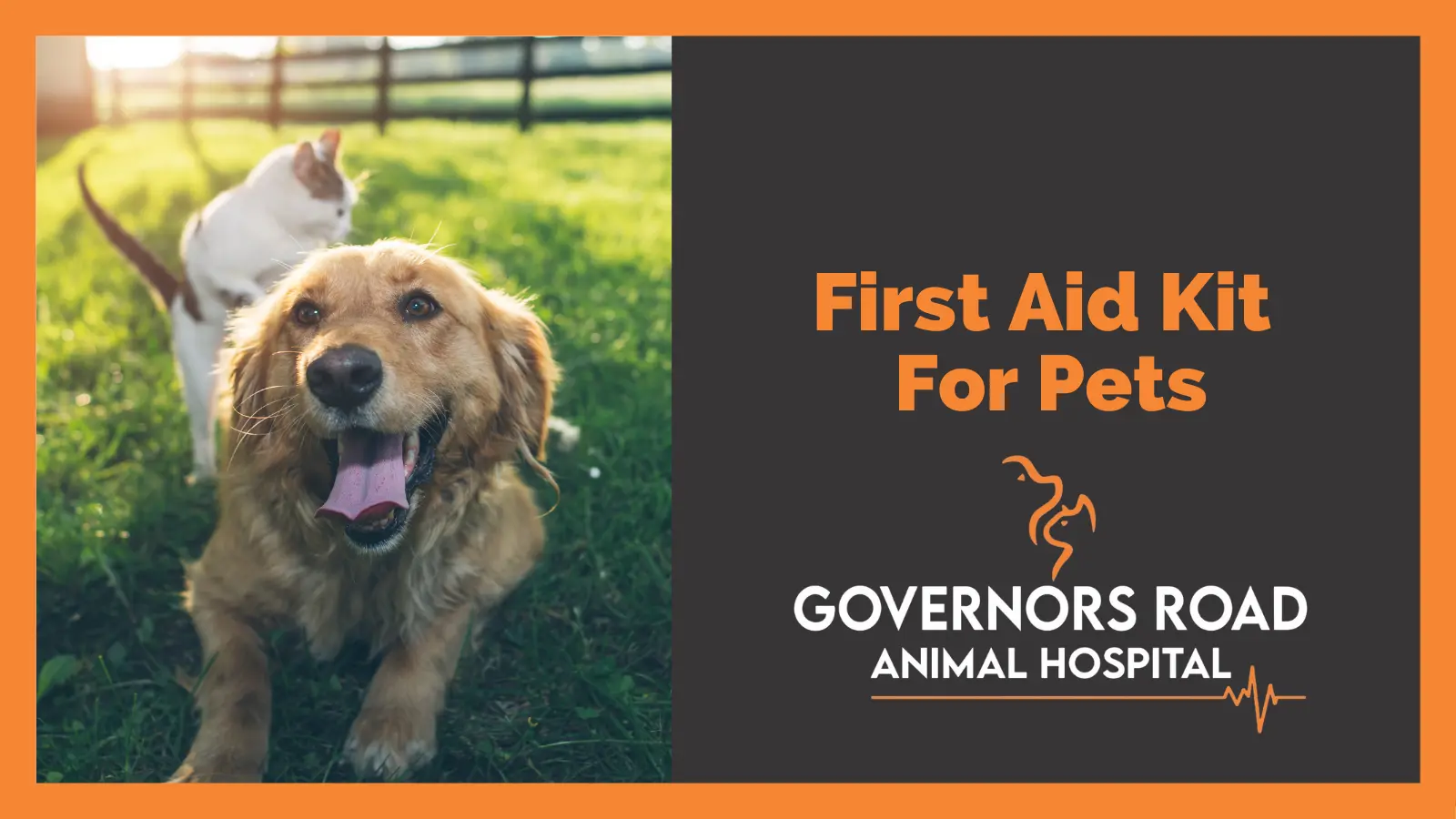
18 Jan First Aid Kit For Pets
As a pet owner, you wish your dog or cat to always be in good health. But pet emergencies can happen anytime, and it is a good idea to be prepared to cope with conditions like simple injuries, accidents, natural disasters, and more. While it makes sense to ask a professional vet for help in such situations, the best way to tend to your dog until the vet arrives is to use a first aid kit.
Even though you’ll find ready-made dog kits out there, it is advisable to customize your pup’s first aid kit as per their needs. In this post, we’ll discuss the things you’ll need in a first aid kit for your dog (and cat).
Paperwork
In case of an emergency, you will require your dog’s paperwork in one place, including medical records, vaccination cards, and more. The information will help your veterinarian treat your dog quickly and reduce any risk of complications. So, make sure you’ve your dog’s medical records handy with the first aid kit.
Hydrogen Peroxide
Hydrogen peroxide is a mild antiseptic used to clean wounds and prevent infections. If your dog ingests something toxic, you can even use hydrogen peroxide to induce vomiting. Consult a professional or your vet about poison control before inducing vomiting.
Antibiotic Ointment
The first aid box must have antibiotic ointment for germ control, infection prevention, and pain relief. Minor cuts and scratches may result in serious outcomes if they become infected. You can use an antibiotic ointment to keep the infection under control.
Gauze, Gloves, Tape, and Scissors
Before attending to any wounds, it is essential to wear gloves to prevent contact with bodily fluids. You can use gauzes to control bleeding, form a temporary brace for fractures, and create a makeshift muzzle. Medical tape is used to hold the gauze in place. Also, you will need scissors to cut the gauze and tape.
Wet Wipes
Wet wipes always come in handy as they are excellent for cleaning anything from blood to mud and fecal matter. These wipes will also keep your and your dog’s immediate environment clean and prevent infection and infestation. Make sure to get wipes that are soaked with betadine or chlorhexidine. Avoid rubbing alcohol onto the skin as it is not suitable for open wounds and sores.
Towel or Blanket
A towel or soft blanket is excellent to wrap around your dog if she is injured or panicking. Wrapping up soft cloth calms pets, enabling easier access to the injury without getting attacked. Soft material, such as microfiber, also offers a good surface for you to rest your dog at the veterinary clinic when needed.
Collapsible Food and Water Bowls
Collapsible food and water bowls are super helpful during travel and emergencies. Always choose silicone bowls as plastic can break or crack.
Water Bottle and Treats
A bottle of water and an emergency stash of food and treats can be a lifesaver for your furry companion.
Medications
It is always a good idea to have some essential medicines in your dog’s first aid kit. Consult your vet about meds that you may use, such as NSAIDs, antacids, sedatives, flea and tick medication, and more.
Comfort Object
Pets need comfort objects, especially during high-stress situations like an emergency. A comfort object, such as an old toy or favorite blanket, will help them remain calm.
Extra Collar, Leash, and Poop Bags
You can never have enough backup poop bags, so always be sure to keep them handy. An extra collar and leash are also necessary as leashes can snap. They are also particularly helpful if you wish to rescue a stray and take them to the animal hospital safely.
Flashlight
A small flashlight should be a part of every pet’s first aid kit. Be sure to keep an extra set of batteries for the light.
First Aid Guide Book
Just because you have a first aid kit does not mean you know the ABC’s of first aid. For this reason, you need a guide book for quick referencing. Pet First Aid by the American Red Cross is a good book to have on hand.
Thermometer
Keep a thermometer in the first aid box, so you can use to monitor your pet’s vital signs. It is advisable to keep water-based lubricating jelly to use with the thermometer.
Cold and Hot Packs
Cold packs cool down the skin after a burn. Hot packs help dogs and cats stay warm if they are hypothermic. Be sure to place a piece of cloth between the skin and the pack to prevent irritation or redness.
Veterinary Clinic in Dundas
Governors Road Animal Hospital is a veterinary clinic in Dundas. We’re open all days of the week to attend to your fur babies. Our services include everything from diagnostics and vaccinations to surgical, nutritional, and dental care.
If you are looking for quality and compassionate veterinary care, contact our animal hospital in Dundas for more information.



Sorry, the comment form is closed at this time.